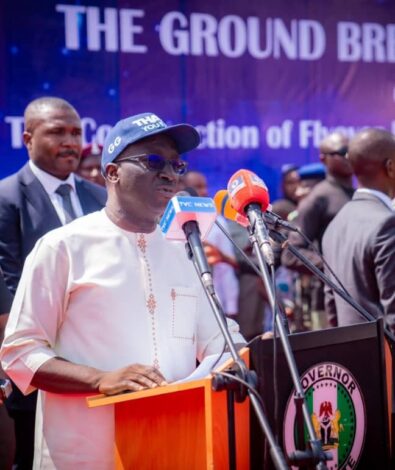Solid minerals sector contributed N1.137trn to government revenue from 2007 to 2023- NEITI

The Nigerian Extractive Industries Transparency Initiative (NEITI) revealed that Nigeria’s solid minerals sector has made a direct financial contribution of N1.137 trillion to federal, state, and local governments over a 16-year period from 2007 to 2023.
NEITI announced this during the presentation of its 2023 Solid Minerals Audit Report in Abuja, marking the 16th audit cycle for the sector.
NEITI’s Executive Secretary, who presented the report, emphasized its role in tracking the solid minerals sector’s contributions to Nigeria’s revenue.
He noted that the report’s findings reflect steady growth and highlight areas for reform to bolster economic diversification.
“This report is pivotal in understanding the economic footprint of Nigeria’s solid minerals sector. From N7.59b in 2007, the sector has shown a remarkable 44-fold revenue increase, reaching N341.27b in 2022,” NEITI’s Executive Secretary said.
The comprehensive audit report conducted by firm Haruna Yahaya and Co. provides insights into the sector’s economic impact, revenue streams, and export data.
Sector growth
The report highlights a consistent upward trend in the sector’s revenue generation, showing substantial government receipts growth, which has now surpassed ₦1 trillion in cumulative contributions.
- In 2022 alone, the solid minerals sector generated N345.41b, with a reconciled final revenue of N329.92b. NEITI explained that this growth underscores the sector’s evolution into a key contributor to Nigeria’s economy.
- “Company payments analysis indicates that government revenue, including reconciled and unilaterally disclosed figures, reached N401.87 billion in 2023,” the report noted.
- Key revenue streams within this total included VAT (N128.32 billion), taxes collected by the Federal Inland Revenue Service (N370.09 billion), Education Tax (38.64%), Company Income Tax (10.64%), and royalties amounting to N9.06 billion.
- The audit report also covered production and export data, revealing that Nigeria produced 95.07 million tonnes of minerals in 2023. Of this, 4.32 million metric tonnes were exported, with a total export value of N117.29 billion.
- Top mineral-producing states were identified as Ogun, Kogi, and Rivers, with Ogun taking the lead in production volume. Meanwhile, Osun, Ogun, and Kogi states contributed revenue to the sector.
NEITI emphasized its commitment to transparency through the reconciliation process, which resolved discrepancies in company payments initially totaling ₦301.6 billion, later reduced to ₦100 million. “The reconciliation down from ₦301.6 billion to ₦100 million reflects NEITI’s dedication to promoting transparency and accountability in the solid minerals sector,” NEITI explained.
Contribution to GDP
In terms of the Gross Domestic Product (GDP), NEITI’s report disclosed that the solid minerals sector accounted for 0.83% of Nigeria’s GDP in 2022, slightly decreasing to 0.75% in 2023.
- This modest contribution, as highlighted by NEITI, points to untapped potential that could drive Nigeria’s economic diversification agenda.
- The report advocates for policy reforms aimed at unlocking the sector’s full capacity, highlighting its potential for greater economic impact.
- NEITI stated, “The solid minerals sector holds untapped potential that, with effective policies, could play a pivotal role in Nigeria’s economic diversification.”
The report reiterates the importance of policy measures and sector reforms to enable the solid minerals industry to make a more significant contribution to Nigeria’s economy.



